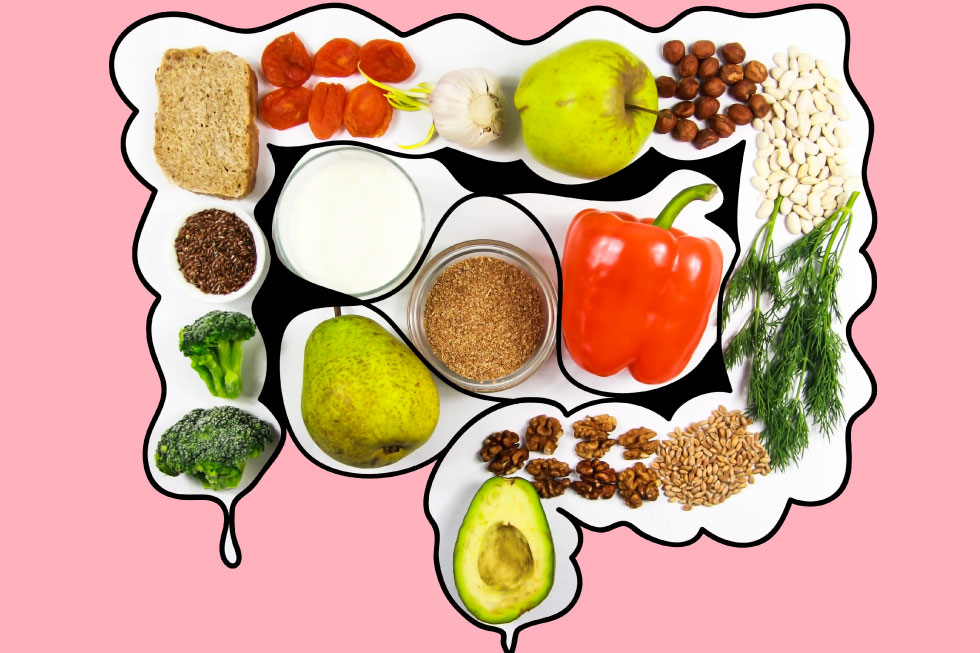
Be Proactive with Your Gut Health
It may be surprising to learn that microbial genes (bacteria) outnumber human genes 100 to one in the human body. This may make you run for the hand sanitizer, however, these are the genes that make or break your health. Many of those billions of microbial genes live in your gastrointestinal tract (gut), which is why it’s important to feed your gut properly with fruits and vegetables, whole grains and foods that contain probiotics and prebiotics. Probiotics are good bacteria that help diversify your gut and prebiotics are food for probiotics to eat. An analogy to help understand the difference between the two is that probiotics are like seeds being planted in the gut and prebiotics are like fertilizer helping those seeds grow. One way to promote health is to have a wide variety of bacteria strains in the gut.
Where do we find probiotics?
Probiotics are found naturally in many fermented foods. Foods that are high in probiotics include yogurt (with live and active cultures), sauerkraut (the unpasteurized kind), miso soup, soft cheeses (like gouda), kefir (fermented milk), sourdough bread, acidophilus milk (fermented milk) and tempeh (fermented soybeans). Each of these foods were transformed into what they are from a different version of the same food. For example, sauerkraut is created by fermenting cabbage and yogurt is created by fermenting milk. Probiotics can also be found in supplemental form. Before trying a probiotic supplement, it is important to find a company that is transparent and shares qualifying information on their website or product bottle about the product. For instance, the identification of the genus, species and strain of the probiotics used in the product; identification of health benefits including citations from published human studies on the probiotic strain; proper storage conditions; and lastly the recommended usage based on the published studies. Not all probiotics are created equally and each strain affects the body differently. It’s important to find one that provides the health benefits you are seeking.
Where do we find prebiotics?
Prebiotics are found naturally in asparagus, Jerusalem artichokes, bananas, oatmeal, honey, maple syrup, and legumes. You can also find prebiotics in supplemental form, but it is still important to find a company that is transparent about what the supplement contains.
The type of bacteria found in your gut has a large impact on your overall health, it is important to have a wide variety of bacteria in order to keep your health. Probiotics are good bacteria that can help diversify your gut. When you have too much bad bacteria the likelihood of having diseases like ulcerative colitis, Crohn’s disease and irritable bowel syndrome are increased. Treat your gut right and feed it with fruits and vegetables, whole grains and foods that contain probiotics and prebiotics.
For more information on probiotics check out the website AEProbio: http://www.aeprobio.com/
